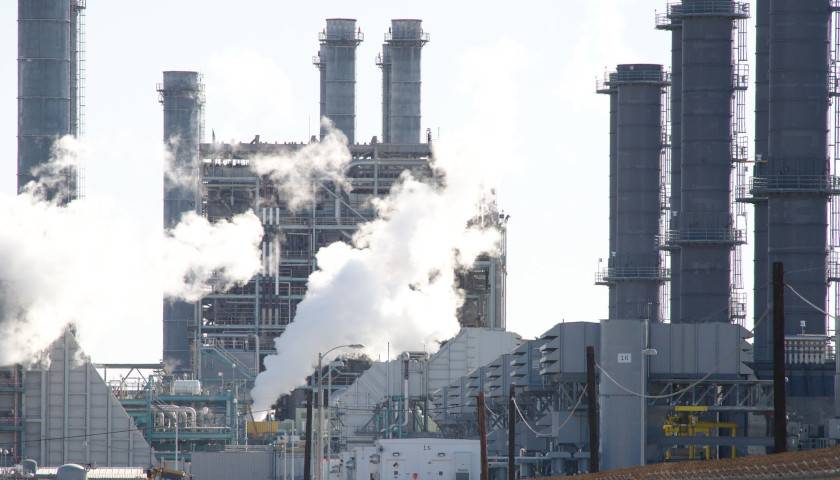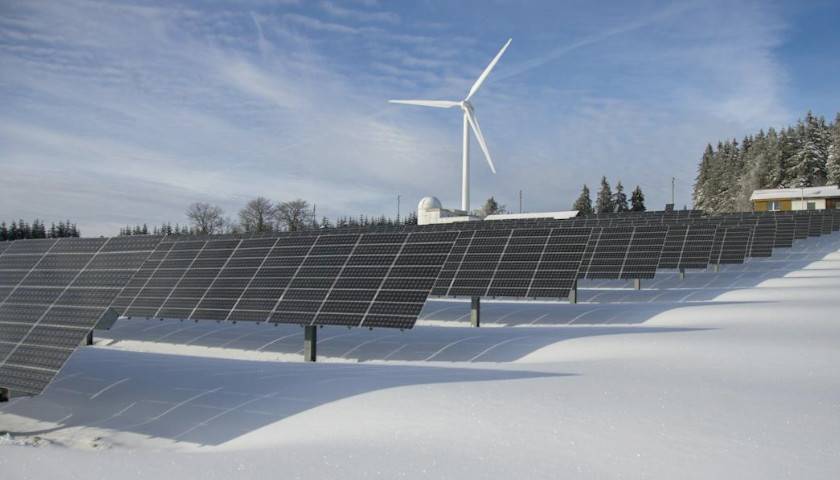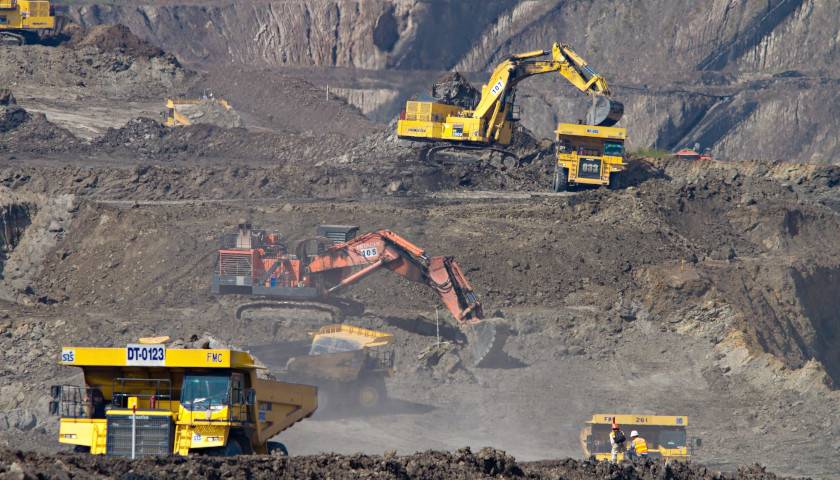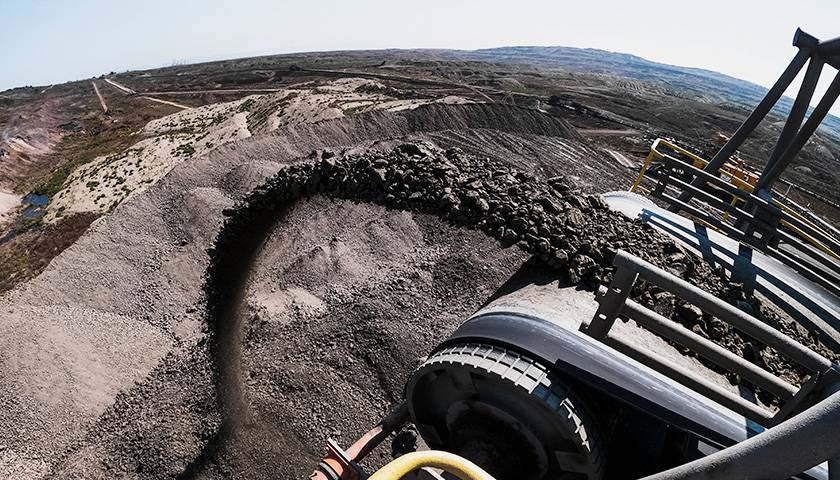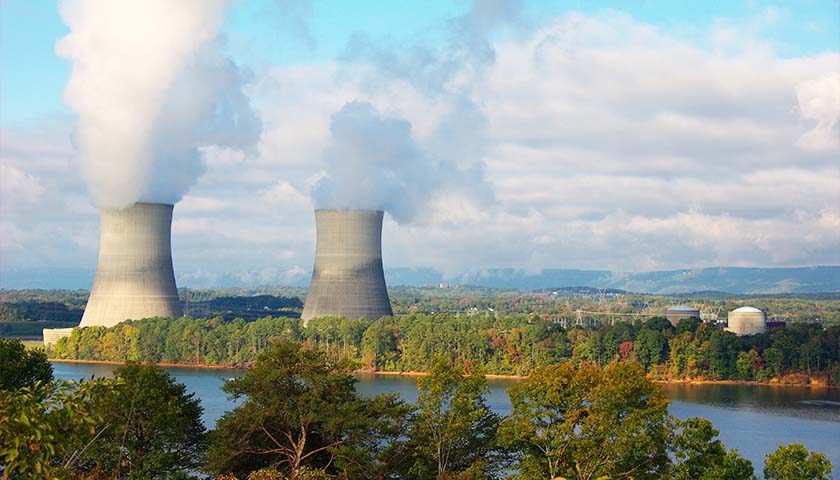If approved by the Senate, Trump’s pick for Energy Secretary, Liberty Energy CEO Chris Wright, will be the first time the Department of Energy has had an executive in the energy industry lead it. In a statement on X, Wright said he’s “honored and grateful” for the opportunity.
Read MoreTag: coal
Wyoming Delegation Warns Interior Secretary Block on Coal Leasing Threatens Grid Reliability
Wyoming’s Congressional delegation is warning Interior Secretary Deb Haaland that a proposed amendment to the Resource Master Plan (RMP) for the Bureau of Land Management’s Buffalo field office would have dire consequences on the nation’s grid and economy.
In their letter Tuesday, Rep. Harriet Hagamen and Sens. John Barrasso andCynthia Lummis, Republicans, explained that roughly 40% of all coal mined in the U.S. comes from Wyoming and most of that in the Powder River Basin.
Read MoreStudy Grades Natural Gas as Best Source for Reliability, Affordability and Environmental Impact
A new study finds that natural gas is the most effective energy source meeting growing energy demands affordably and reliably, while balancing environmental and human impact.
The “Grading the Grid” study by the Mackinac Center for Public Policy, a pro-free market nonprofit, and Northwood University rates natural gas, coal, petroleum, nuclear, hydroelectric, wind, solar and geothermal generation sources on their reliability, environmental and human impact, cost, innovation and market feasibility.
Read MoreCommentary: The Delusions of Davos and Dubai Surrounding Wind and Solar Energy
In the most recent “Conference of the Parties,” otherwise known as the United Nations extravaganza that convenes every few years for world leaders to discuss the climate crisis, several goals were publicly proclaimed. Notable were the goals to triple production of renewable energy by 2030 and triple production of nuclear energy by 2050. Against the backdrop of current global energy production by fuel type, and as quantified in Part One, against a goal of increasing total energy production from 600 exajoules in 2022 to at least 1,000 exajoules by 2050, where does COP 28’s goals put the world’s energy economy? How much will production of renewable energy have to increase?
To answer this question, it is necessary to recognize and account for the fact that most renewable energy takes the form of electricity, generated through wind, solar, or geothermal sources. And when measuring how much the base of renewables installed so far will contribute to the target of 1,000 exajoules of energy production per year in order to realize—best-case scenario—800 exajoules of energy services, the data reported in the Statistical Review of Global Energy is profoundly misleading.
Read MoreCommentary: Coal’s Life-Saving Role Ignored by Climate-Obsessed Media
On a recent cold winter day, residents of Munich were surprised to see people skiing in the street. Yes, that is how much snow fell in the German city and other parts of Europe during the early winter of 2023-2024.
Despite a disruption to both ground and air travel, the Germans survived the freezing weather with access to heating and basic utilities. But not everyone in our world is as fortunate as those living off reliable energy sources in Western economies.
Read MoreRepublican AGs Push Back Against ‘Reckless’ Plan from Biden’s EPA That Could Further Hobble American Coal
by Nick Pope Several state attorneys general are engaging in legal battles against President Joe Biden’s Environmental Protection Agency (EPA) to determine whether or not his administration will be able to impose its costly plan for implementing a regulation designed to further incapacitate the American coal industry. Multiple states…
Read MoreGlobal Carbon Dioxide Emissions Hit Record High
Global carbon dioxide emissions hit a record high of more than 36 billion tons in 2022, although emissions grew more slowly than anticipated, the International Energy Agency (IEA) reported Thursday.
Emissions from coal surged by 1.6%, to a record breaking 15.5 billion tons, as Europe turned to coal after Russia slashed exports of natural gas following its invasion of Ukraine, the IEA reported. Growth in renewable energy sources mitigated more than half a billion tons of carbon dioxide emissions, helping keep emissions growth below expectations, and accounted for roughly 90% of all new power generation.
Read MoreCommentary: The Left Sacrifices Natural Gas at the Altar of Climate Nirvana Leaving Good Americans Freeze to Death
The just-departed polar vortex confirmed that when Mother Nature is enraged, it’s wise to have options. Maddeningly, today’s “pro-choice” Democrats want Americans to have one energy choice.
Neo-totalitarian, Left-wing eco-extremists are banning new natural-gas access in scores of locales. If not reversed, this cruel, stupid, needless policy will kill Americans.
Read MoreWorldwide Coal Use Set to Hit an All-Time High Due to Energy Crisis
Global coal consumption will reach an all-time record by the end of 2022 as shortages of natural gas have driven up energy prices, forcing countries to burn more coal, according to the International Energy Agency (IEA).
The international community is set to use over 8 billion tons of coal in 2022, representing a 1.2% increase in coal consumption compared to 2021, as countries began using coal as a cheaper alternative to natural gas after prices spikedfollowing Russia’s invasion of Ukraine, according to the IEA’s annual coal report which was released Friday. The agency predicts that coal consumption will hover around such levels until 2025 as although coal demand could fall in the West, it remains high in developing Asian nations like China and India.
Read MoreWorldwide Coal Usage Skyrockets Ahead of Major UN Climate Conference
The global energy crisis is causing coal use to soar ahead of the United Nations’ COP27 summit, where countries will renew pledges to phase out fossil fuels, Bloomberg reported Friday.
Numerous world leaders, including President Joe Biden, will attend Egypt’s COP27 to discuss plans to slash carbon emissions and promote green energy amid a raging energy crisis. Meanwhile, coal-fired electricity generation, particularly in Europe, is surging as Russian natural gas and renewable energy sources are in short supply, according to Bloomberg.
Read MoreCommentary: Expensive Energy Is a Core Feature, Not a Bug, of Biden’s Climate Agenda
“Every government intervention creates unintended consequences, which lead to calls for further government interventions,” observed the great Austrian economist Ludwig von Mises. He was being generous by describing interventionism’s nasty side-effects as “unintended.” Some younger interventionists are naïve, and know not what they do, but the older, street-smart captains of progressive politics understand the harms their policies entail. For them, the adverse consequences are features, not bugs. The only downside is the risk of political retribution at the polls.
That’s the predicament in which the Biden administration now finds itself. It is also the theme of “Energy Inflation Was by Design,” a new report by supply-chain consultant Joseph Toomey.
Read MoreTop 10 Tough Votes Democrats Had to Take During Vote-a-Rama for Massive Spending Bill
During a “vote-a-rama” on their $739 billion reconciliation spending bill that has hundreds of billions for climate and health care programs, Democratic senators had to take a series of uncomfortable votes on hot-button issues — particularly tough for those representing swing states.
The bill, which also includes federal funding for 87,000 new IRS agents, passed on a party line vote 51-50 with Vice President Kamala Harris breaking the tie.
Read MoreSchweizer: BlackRock CEO Larry Fink, Other Wall Street Leaders Partner with Chinese Coal, Military Enterprises
The investigative journalist and author of Red-Handed: How American Elites Get Rich Helping China Win told The Star News Network the titans of capitalism on Wall Street are now the partners of the Chinese Communist Party.
“What China wants from Wall Street is access to Western capital with no questions asked, and unfortunately the biggest fans on Wall Street are prepared to give it to them,” said Peter Schweizer, who is the president and founder of the Government Accountability Institute and the host of The Drill Down podcast.
Read MoreAnalysis: Many Environmentalists Oppose Nuclear Energy Despite Its Reliability, Carbon-Free Footprint
Expanding U.S. nuclear power — an energy source that many environmentalists and lawmakers oppose — could be the most reliable way to achieve a carbon-free electricity grid, according to experts.
Nuclear energy is considered a renewable energy source because it produces zero emissions through fission, the process of splitting uranium atoms, according to the Department of Energy. Currently, nuclear accounts for about 9% of total U.S. energy consumption, slightly less than all other renewable energy sources combined and coal, government data showed.
Read MoreChina Ramps Up Coal Production Despite Its Climate Promises
The Chinese government ordered its domestic coal suppliers to ramp up production and rubber-stamped approvals for new mines as the country faces an energy crisis, The Wall Street Journal reported.
China, like Europe and many other parts of Asia, has faced rapidly increasing energy costs over the last several months as its economy recovers from the COVID-19 pandemic, according to the WSJ. The rising cost of coal — which accounts for the vast majority of China’s energy supply — has been a main driver of the overall price increases.
Read More


